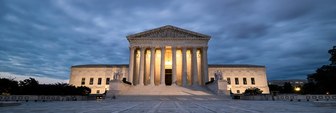October’s 6.2% increase in prices was the highest since 1990, though it was still well below the double-digit inflation of 1979-81. This has shifted public focus away from jobs and toward prices.
In the latest Economist/YouGov Poll, three times as many Americans (36%) call inflation a bigger economic problem than joblessness (11%), though 43% think both are equally serious. That ratio is up from two to one last month (30% to 16%). And like last month, more than twice as many Americans say that prices of goods and services are the best indicator of the state of the economy than name the unemployment rate and job reports as the best indicators.
High inflation can spell trouble for political leaders as well as for the public. In the 1980 presidential election, high inflation helped Ronald Reagan defeat the Democratic incumbent, Jimmy Carter.
Most Americans say they have seen prices for gas and food go up “a lot” in the last year. Half say housing costs also have risen a lot.
How rising prices affect Americans
Those who say they feel the increases the most are those with the lowest incomes. The top price increases when it comes to causing distress are increases in the price of gasoline and food: 56% are having difficulty affording gas, and more than half say they are having difficulty affording food.
Housing costs rank third in posing difficulties: Just under half of Americans say they are having difficulty paying their housing costs. Among people with family incomes below $50,000, two-thirds say they are having difficulty paying for gas and food, and 60% say they are having difficulty affording their housing.
Most Americans also say they are worrying about paying these costs in the future.
Over the past year, the Americans who may have paid the biggest price in order to cut costs are the 21% who say they have had to put off receiving medical care. Just 13% of people with annual family income of $100,000 or more said they had to cut back on medical spending.
How Americans forecast the economy
Americans’ outlook for the future is grim, though there are some indications it is leveling out or even slightly improving. Only one in four say the current economic situation is excellent (4%) or good (21%) — about the same as last week’s level. Nearly half (46%) say the economy is getting worse, while 19% say it is getting better — a slight improvement from last week’s 48% to 14%.
Half (52%) don’t expect a full post-pandemic economic recovery until more than two years from now, while just 27% expect a recovery within about a year; the figures were a grimmer 57% and 22% a month ago. Six in ten (62%) say a recession is likely in the next 12 months, including 25% who say a recession is very likely in that timeframe. Both fears are at higher levels than in late March 2020, during the lockdown of the pandemic’s first weeks.
There is a political component to the fear of recession, as with many facets of public opinion about the state of the economy. With Democrat Joe Biden in the White House, Republicans are more likely than Democrats to say a recession is very likely (42% to 11%). However, even among Democrats a slight majority (51%) say that a recession is somewhat or very likely within the next 12 months.
Income has little effect on people’s assessment of the likelihood of recession, but it affects their view on how they’d be affected. Among Americans with family income under $50,000, 35% say a recession would have a very serious effect on their personal financial situation; the figure is just 13% for Americans with family income of $100,000 or more.
Americans still worry about unemployment, even as the jobless rate continues to drop to its lowest level since before the pandemic began. Despite the drop, nearly three in four say that unemployment is a somewhat (40%) or very (32%) serious national problem, and 56% say that more people are out of work than the official figures indicate. Those figures are roughly the same as they were a month ago.
See the toplines and crosstabs from this Economist/YouGov Poll
Methodology: The Economist survey was conducted by YouGov using a nationally representative sample of 1,500 U.S. adult citizens interviewed online between November 6 and November 9, 2021. This sample was weighted according to gender, age, race, and education based on the 2018 American Community Survey, conducted by the U.S. Census Bureau, as well as 2016 and 2020 Presidential votes (or non-votes). Respondents were selected from YouGov’s opt-in panel to be representative of all U.S. citizens. The margin of error is approximately 3% for the overall sample.
Image: Getty









